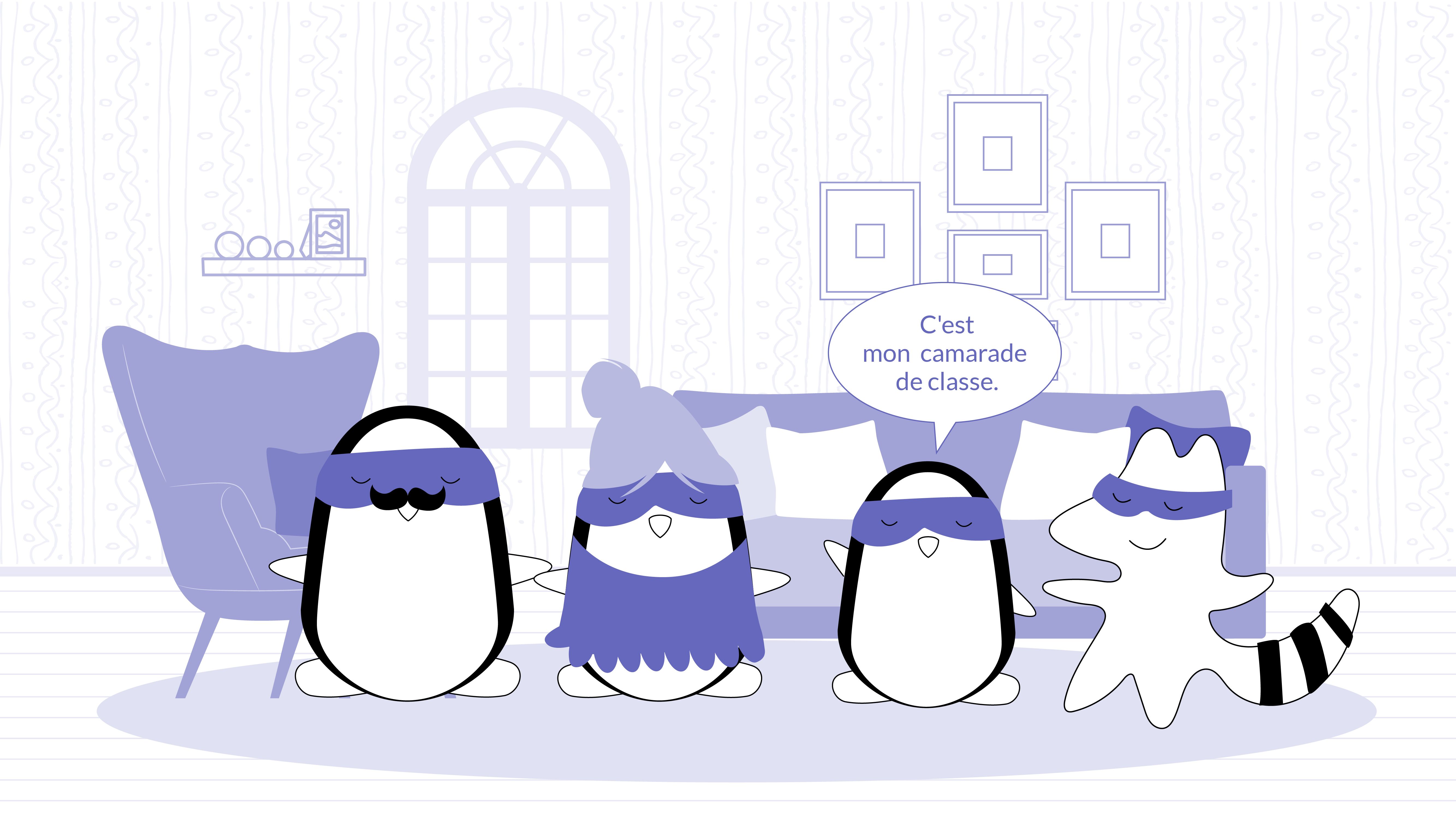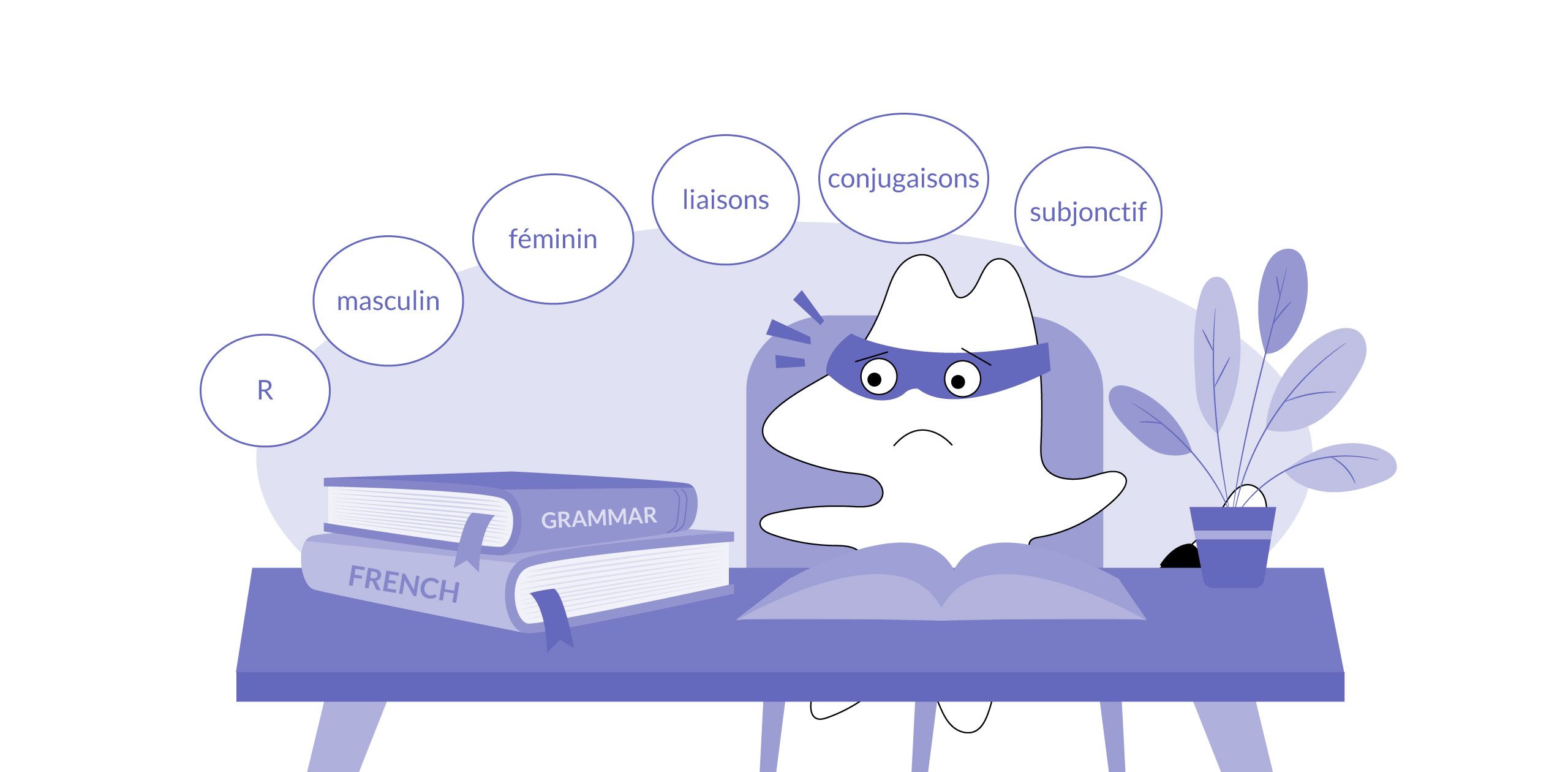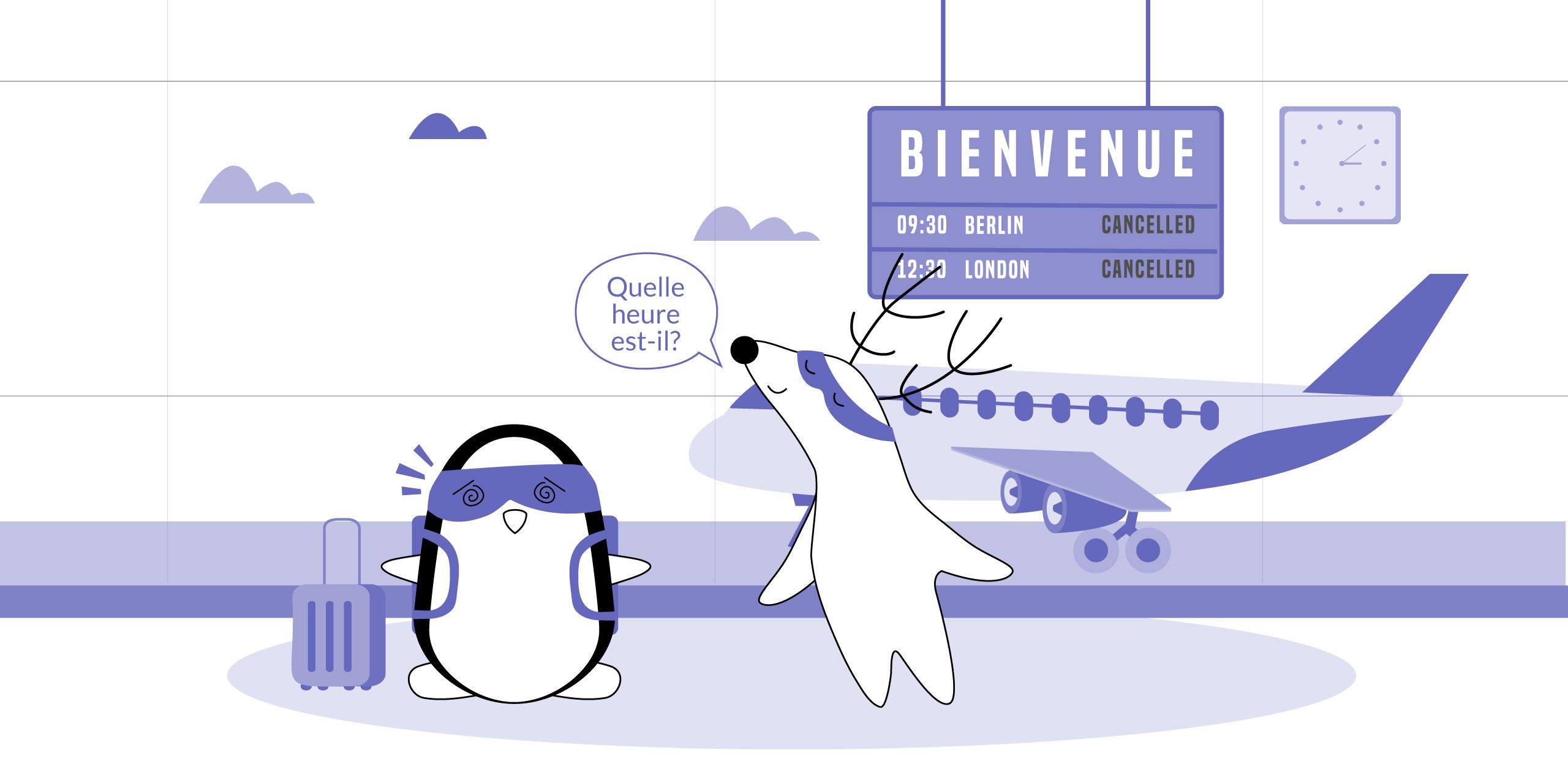
Do you want to learn how to say “friend” in French? If so, you’ve come to the right place! Knowing how to properly address and refer to your friends is a key part of learning any language. Whether you are studying for school, planning a vacation abroad, or just want to broaden your knowledge, learning how to pronounce and use the words for “friend” is essential.
With all its nuances and complexities, speaking the French language can be difficult at times – but don’t worry! With our help, even beginners should have no trouble learning the proper French word for “friend.” So, let's get started!
Learn French with Langster
The Standards French “Friend” - Ami/Amie
The most common way to say “friend” in French is "ami” or “amie." This is how you will be referring to your friends most of the time, so it’s important that you learn how to pronounce this word correctly. Repeat after the example:
French
English
ami, amie
a friend
This word can be used both in formal and informal speech, so learning it will be enough for basic conversations with your friends in French. However, if you want to boost your speaking skills and show your fluency, you might also want to learn a few phrases constructed with this word.
Remember To Consider Gender
Of course, these are not two words, but two variations of one. In French, as in many other languages, some nouns and adjectives change their ending depending on the gender of the person they are describing. While you can't hear the change in oral speech, it's important to remember this agreement in writing.
For a single friend (or more than one friend of the same gender), you can use the singular masculine form “ami" when talking about a male friend and the singular feminine form "amie” when speaking about a female friend.
If you are referring to multiple friends who could be either male or female, then you can use plural “amis" for a group of both female and male friends and "amies” for a group of female friends.
Ami/e Is Not That Simple, Though
Most often, when you use the word "ami/e," people will understand that you're talking about your friend. However, in certain constructions, this word can also refer to... a romantic partner. There are some simple rules to determine the correct meaning:
- When used with an article "un" or "une," "ami" will refer to a platonic friend.
- When used with a possessive pronoun, such as "mon" or "ma," it refers to a girlfriend or boyfriend (or, generally, a romantic partner)
- When used in a plural form, this world will always refer to platonic friends.
For example:
French
English
Je vis avec mon ami.
I live with my boyfriend.
Je suis allé au cinéma avec mon amie hier.
I went to cinema with my girlfriend yesterday.
Note that even though “amie” refers to a girlfriend, we would still use the masculine possessive pronoun “mon.” This is done for the phrase to sound more natural.
French
English
J'ai fait un voyage en Italie avec une ami.
I went on a trip to Italy with a friend.
Nous allons passer le Nouvel An avec nos amis.
We're spending New Year with our friends.
Of course, there are exceptions to these rules.
For example, sometimes, you can use the word "ami" with a possessive pronoun but refer to a friend:
French
English
Tu es vraiment mon ami !
You really are my friend!
This is also true in certain constructions, such as:
French
English
C'est ma chère amie.
This is my dear friend.
Fortunately, most often, the meaning will be easy to determine from the context, so these rules shouldn't be hard to deal with.

Learn Common Expressions with Ami/e
Once you learn the basics of using "ami/e," it's time to move on to more complicated phrases. Here are some helpful ways to use this word in spoken French, such as saying you love them:
French
English
vrai ami
true friend
meilleur ami
best friend
vieil ami
old friend
bon ami
good friend
am proche
close friend
mon petit ami
my boyfriend
un ami a moi
a friend of mine
Of course, remember gender agreement when using these phrases.
French
English
J'aime ma meilleure amie !
I love my best friend!
C'est une amie de Sara.
She’s a friend of Sara.
Want Something More Casual? Use Copain or Copine
If you want to sound more casual and friendly when talking about your friend, try using "copain" for a male friend or “copine” for a female friend. These are also very common French words, and while they are a little more casual than "ami," you can still use them in everyday speech.
Just like the previous word, "copain" needs to agree in gender and number with the person or people it refers to. However, it will change its pronunciation in different forms:
French
English
copain, copine
friend, singular
copains, copines
friends, plural
Another way “copin” and “ami” are similar is that you can use both of them to talk about friends and romantic partners. The rules we’ve mentioned above apply to “copain” as well.
French
English
C'est mon copain, Mark.
This is my boyfriend, Mark.
J'étudie dans la même université que ma copine.
I study in the same university as my friend.

Don’t Be Afraid to Use Slang: Pote and Poteau
You won't be talking to your friends just in formal situations, though. And, if you want to sound as casual as possible, there's always slang to use.
There's a lot of slang words in French that can be used for “friend,” but some of the most common ones are “pote” and “poteau.”
“Pote” can be translated like “pal” or “mate” into English. It doesn’t denote a certain gender and can be used when talking to both your male and female friends; it’s a bit more common to be used with men, though.
“Poteau” is a diminutive of “pote” and can roughly be translated the same way. You can also use it to say “bud.” However, unlike “pote,” it is used mostly when talking about male friends.
French
English
pote
pal, mate
poteau
pal, mate, bud

Other Ways to Say “Friend” in French
If you're looking for more variety, there are plenty of other words in French that can be used to mean “friend” in different contexts. Here are a few examples:
French
English
intime
a close friend, pretty formal
This word can also be used to talk about close friends of a family.
French
English
camarade (de classe)
a friend from school
frère
brother, bro
frérot
little brother, bro
sœur
sister
frangin, frangine
bro, sis
igo
homie
Bottom Line

As you can see, there are plenty of ways to say "friend" in French. Whether you want to sound formal or informal, use a diminutive form or an abbreviation, lots of words will help you do it.
So, go ahead and enjoy conversations with your French-speaking friends! And, if you want to learn more French vocabulary related to relationships, family, or feelings, check out the other posts on our blog.









